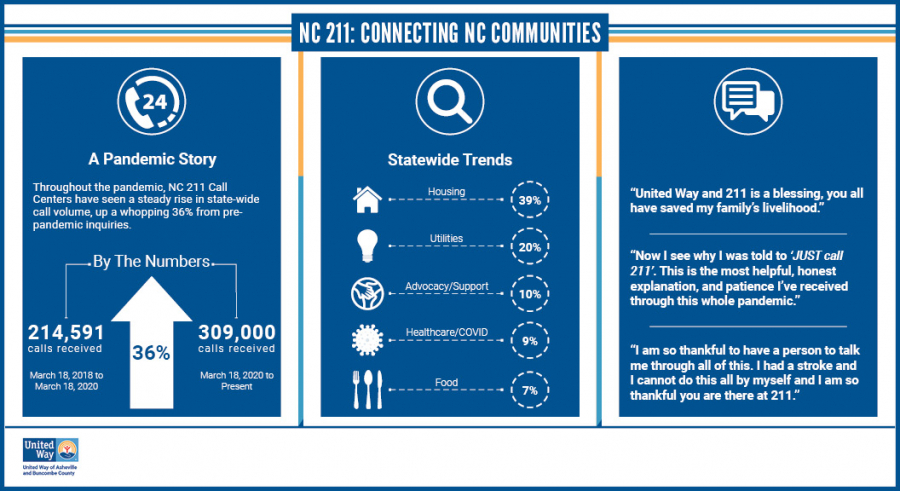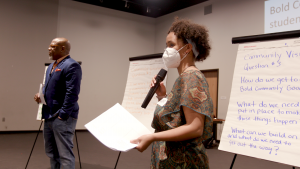As leaders within your organization, you understand the importance of being agile. The ability to adapt and overcome lies at the heart of success - both personal and professional. Over the past 2 ½ years, this is a lesson we’ve all had to learn. And it’s been a long hard row for everyone. Yet here we are, still standing with the same common purpose that binds us together — building a brighter future for the community where we all live, work, play, and raise our children. We know this bond is inescapable. Why? Because regardless of circumstances beyond our control, we still have the shared responsibility to roll up our sleeves and dig deep for the betterment of future generations. Now more than ever, we need each other.
Side by Side
As we move into our 2nd century of service, United Way of Asheville and Buncombe County is committed to doing just that, adapting to meet the needs and new challenges that our community faces. But we can’t do it alone.
For over 100 years, companies like yours have stood shoulder to shoulder with us, helping our community to weather the storm by raising the needed financial resources to tackle our most challenging issues. Throughout:
- You've opened your doors, allowing us to share our story with your employees.
- You've given your time, your voice, your people power, and your financial contributions.
- And you've made an impact on the lives of our neighbors.



 An Unprecedented Opportunity
An Unprecedented Opportunity The
The 
_0.jpg) For over 15 years, organizations like yours have understood the importance of, and the need to invest in volunteerism as a means to help our neighbors. And if COVID-19 has taught us anything, it’s that citizens volunteering to help one another can have an incredible impact.
For over 15 years, organizations like yours have understood the importance of, and the need to invest in volunteerism as a means to help our neighbors. And if COVID-19 has taught us anything, it’s that citizens volunteering to help one another can have an incredible impact.  Community Conversations are not a new concept for United Way. We used this process - engaging and gathering feedback from the community - to help focus our efforts in establishing what would become our community school strategy.
Community Conversations are not a new concept for United Way. We used this process - engaging and gathering feedback from the community - to help focus our efforts in establishing what would become our community school strategy.